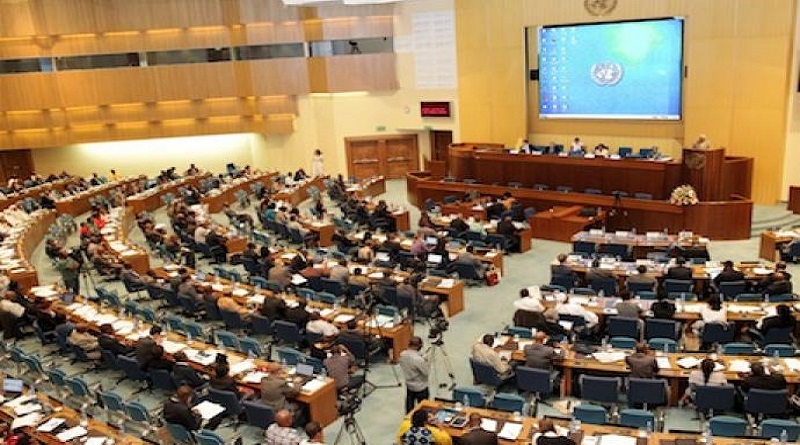Nigeria, 8 others showcase actions to curb, reduce emissions
Nine developing nations including Nigeria, Armenia, Brazil, Republic of Korea, South Africa, Thailand, the Republic of North Macedonia, Uruguay and Vietnam on Thursday presented an update on their activities to curb and reduce greenhouse gas emissions before 2020. This took place at an event known as the Facilitative Sharing of Views (FSV) at the ongoing United Nations Climate Change Conference in Bonn.
The showcased actions range from the introduction of emissions trading schemes to efficiency measures in buildings, the promotion of renewable energy and low emission beef production.
“Transparency is the key vehicle to increase climate action and ambition,” said UNFCCC Executive Secretary, Patricia Espinosa. “All nations must show, through their actions, not just their words, that they’re willing to significantly boost climate action, and to do it together,” she said. “Those efforts must be transparent.” She added that transparency also provided an opportunity for the open exchange of ideas and for learning from one another.
In his opening remarks, the Chair of the Subsidiary Body for Implementation (SBI), Mr. Emmanuel Dlamini, said: “The FSV is a way to build trust and confidence in the climate intergovernmental process.”
The FSV workshops, which already began in 2016, have been an opportunity to showcase a wealth of action and innovation, including:
Actions to decouple economic growth from the growth of greenhouse gas emissions to reach the goals of countries’ national climate action plans (Nationally Determined Contributions, or NDCs)
Promoting low carbon development in key sectors
Innovative approaches to support local governments in implementing national climate change policies
Promoting private-public partnerships and incentives that encourage more climate technologies and innovation
Putting in place economic instruments such as emissions trading to help improve the level of ambition
Strengthening domestic monitoring, reporting and verification systems
Multilateral Assessment to Take Place 24 and 25 June in Bonn
The work on transparency at the Bonn climate conference will also include the Multilateral Assessment of developed countries’ actions on climate change, which takes place on Monday 24 and Tuesday 25 June.
These transparency sessions are geared towards helping countries, especially developing countries, to increase their ambition by learning from one another. While the focus is on efforts to reduce emissions, other vital issues are addressed, such as finance, technology transfer and capacity building.
At next week’s Multilateral Assessment workshop, 19 developed countries will take the stage to showcase their climate actions.
Questions have already been asked of those countries under Multilateral Assessment, including: What are country’s plans to increase ambition and strengthen their climate actions? What is the role of the land use sector in their climate actions? What are the drivers for any increases in greenhouse emissions?




